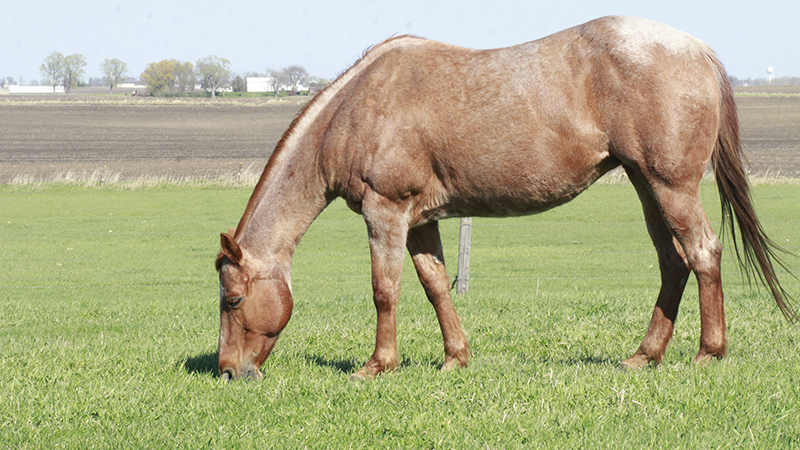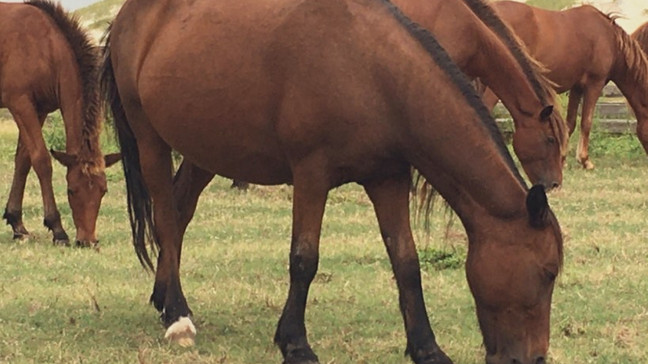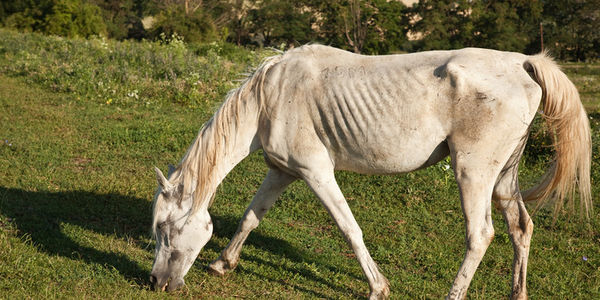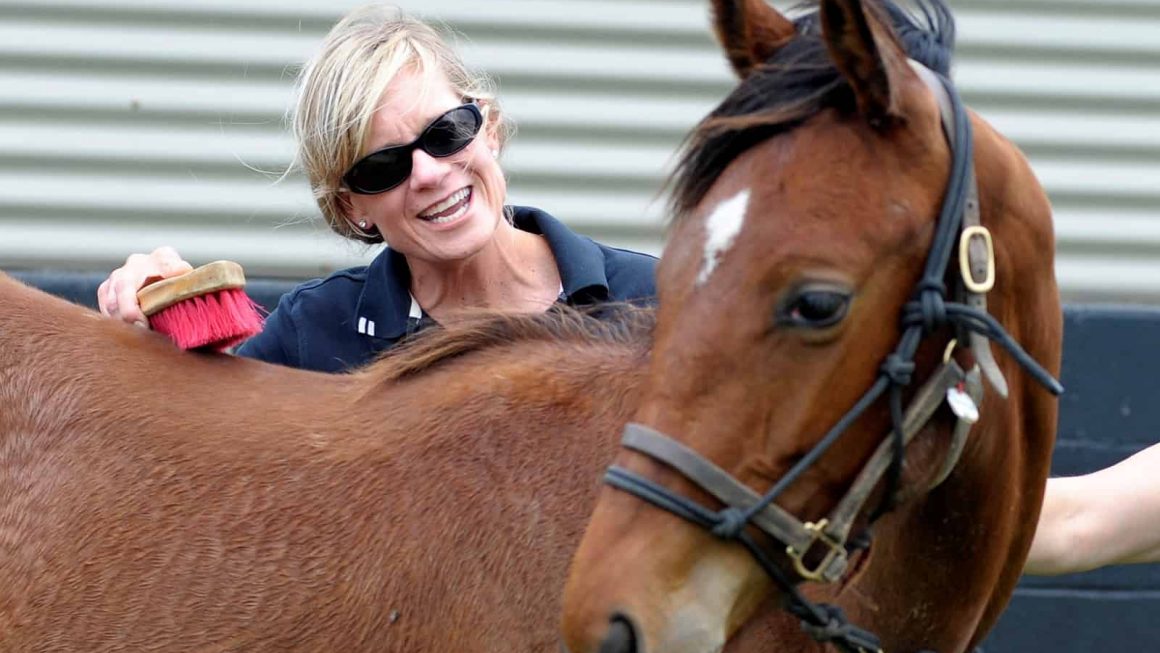Have you ever wondered how long can a horse lay down before it dies? Horses are majestic animals that have been domesticated for centuries. They are known for their strength, grace, and speed, and are often used for transportation, work, and competitive sports. However, like any other living being, horses require rest and sleep to maintain their health and well-being.
In this article, we will explore the importance of rest for horses and answer the question of just how long a horse can lay down before it reaches a critical point.
Seemore: Can Horses Eat Grapes? – All Important Things You Should Know
How Long Can a Horse Lay Down Before It Dies?
As mentioned earlier, horses spend an average of 15 hours per day sleeping or resting. However, there is no specific time limit for how long a horse can lay down before it dies. Horses are intelligent animals that know when they need to get up and move around to avoid any negative effects from laying down for extended periods.

However, it is essential to monitor a horse’s laying habits and make adjustments if necessary. If a horse is consistently laying down for longer periods than usual, it may be a sign of underlying health issues or discomfort. In these cases, it is crucial to seek veterinary attention to prevent any potential problems.
The Importance of Rest for Horses
Just like humans, horses need adequate rest to perform at their best. In fact, horses spend an average of 15 hours per day sleeping or resting. This is because horses have a unique ability to sleep both standing up and lying down. However, unlike humans, horses do not enter deep sleep (REM sleep) while standing. Instead, they only reach light sleep (Non-REM sleep) in this position. This means that horses require time to lay down and reach deep sleep in order to fully rest and recover.

Rest is crucial for horses as it helps regulate their body temperature, blood flow, and muscle recovery. When a horse is standing for long periods of time, its leg muscles become fatigued due to the constant weight-bearing. Laying down allows these muscles to relax and alleviate any strain. Additionally, when a horse lays down, blood flow to its legs increases, which promotes circulation and reduces swelling. This is especially important for horses that are working or competing regularly.
Factors Affecting How Long a Horse Can Lay Down

There are several factors that can affect how long a horse can lay down comfortably before it reaches a critical point. These factors include age, health, and environment.
Age
Age plays a significant role in a horse’s ability to lay down for extended periods of time. Younger horses, specifically foals, can lay down for longer periods without experiencing any negative effects. This is because their bodies are still developing and require more rest for proper growth and development.
On the other hand, older horses may struggle with getting up and down due to joint stiffness and muscle weakness. As a result, they may need to lay down more frequently in shorter intervals to avoid strain and discomfort.
Health
A horse’s health also plays a crucial role in its ability to lay down comfortably for an extended period. Horses that are sick or injured may not be able to lay down at all due to the pain or discomfort it causes. In these situations, it is crucial to address the underlying health issue and provide proper care to ensure the horse can rest and recover.

Additionally, certain medical conditions such as colic or laminitis can cause horses to lay down more frequently than usual. In these cases, it is essential to monitor the horse’s laying habits and seek veterinary attention if necessary.
Environment
The environment in which a horse lives and works also affects its ability to lay down. Horses that are kept in stalls or small enclosures may not have enough space or suitable ground to lay down comfortably. This can lead to a decrease in resting time and increase the risk of fatigue and injury.
Horses that have access to open pastures and suitable bedding are more likely to lay down for longer periods without any negative effects. It is important to provide horses with enough space to move around and lay down comfortably to promote their physical and mental well-being.
FAQs
1) Can horses sleep standing up?
Yes, horses can sleep standing up, but they do not enter deep sleep in this position. They need to lay down to reach REM sleep and fully rest.
2) How often should a horse lay down?
Horses should lay down for at least 30 minutes every day to fully rest and recover. However, the frequency and duration of laying down may vary depending on age, health, and environment.
3) Do horses dream?
Yes, horses do dream, but they only enter REM sleep while laying down. This means that they are more likely to dream when they are lying down.
4) What should I do if my horse is struggling to lay down?
If your horse is struggling to lay down, it may be a sign of underlying health issues or discomfort. It is crucial to seek veterinary attention to address the problem and ensure your horse can rest and recover properly.
5) Can a horse die from laying down for too long?
There is no specific time limit for how long a horse can lay down before it dies. However, it is important to monitor a horse’s laying habits and make adjustments if necessary to prevent any potential problems.
6) Is it bad for a horse to lay down?
No, it’s okay for a horse to lie down. They need to lie down to sleep well and rest their body. It’s like when we lie down on our bed at night. But, if the horse lies down for too long and looks sick, it’s good to ask an animal doctor to check on it.
Conclusion: How Long Can a Horse Lay Down Before It Dies?

In conclusion, rest is essential for a horse’s physical and mental well-being. Horses require adequate time to lay down and reach REM sleep to fully rest and recover. Factors such as age, health, and environment can affect how long a horse can comfortably lay down before it reaches a critical point. As responsible horse owners, it is our responsibility to monitor our horses’ resting habits and provide them with a suitable environment to promote their overall health and well-being.

